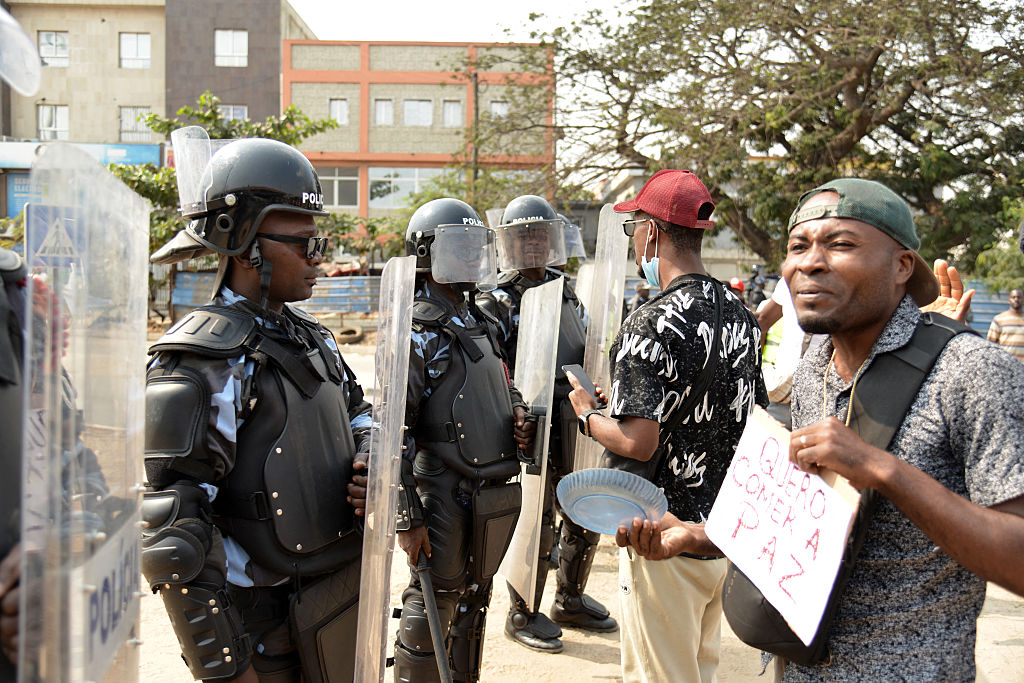As Russian involvement in Africa has shifted from the private Wagner Group mercenary force to government control under the Africa Corps, information operations also have evolved.
Wagner widened influence campaigns and information operations in Africa as part of its work on the continent. After its leader, Yevgeny Prigozhin, died in a mysterious plane crash in 2023, Russia’s information operations took on a new look that mixes government and private efforts, according to research organization All Eyes on Wagner.
“The private sector now plays a central role in Russia’s soft-power arsenal, blending experienced spin doctors, content agencies and discreet conduits of influence,” All Eyes on Wagner wrote in an August 10 report.
Organizations such the African Initiative, Bureau Legint, GR Group and Rybar have become “principal instruments for projecting narrative power in Africa and other strategic theatres,” the report states. Notable among them is the African Initiative, which presents itself as a press agency, but is integrated into Africa Corps units in Burkina Faso, Equatorial Guinea, Mali and Niger.
The initiative works to promote Moscow and has formed a network of influencers, journalists, media outlets and nongovernmental organizations. Initiative personnel often meet with civil society groups at a host government’s behest, All Eyes on Wagner reports.
In such meetings, the Russian representative will claim legitimacy as part of the military agreement with the host country and offer the organization the “opportunity to contribute to Russia’s influence there in exchange for compensation” and introduce it to people and groups likely to produce pro-Russian content.
“Russia’s propaganda operations in Africa are not improvised — they are strategic, structured, and deeply embedded in both official and shadowy organizations,” according to an August 4 Robert Lansing Institute report. Their objectives are to undermine Western alliances and influence; to justify the presence of Russian paramilitary forces such as the Africa Corps; to facilitate energy, mining and arms deals by influencing political elites; and to promote a multipolar world order.
In a recent example of how Russian influencers operate, Angolan authorities arrested two Russians in August and accused them financing terrorism, forging documents and associating with criminals. The Jornal de Angola newspaper reported that the nation’s Criminal Investigation Service (SIC) said the men recruited and paid citizens to produce propaganda materials, spread false information on social media, promote demonstrations and commit looting.
One of the men, Lev Lakshtanov, 64, founded a cultural NGO called Farol for Portuguese-speaking countries. After settling in Angola, he and his associate, Igor Racthin, 38, posed as journalists and contacted an important figure in Angola’s main opposition political party, who connected them with a state television journalist.
Soon they were conducting paid political interviews and opinion polls on how Russia is perceived before authorities arrested them in connection with “orchestrating fuel protests,” Radio France Internationale reported. The protests broke out in July after the Angolan government cut fuel subsidies and increased diesel prices.
The Russian meddling comes after Angola in late 2022 invited Western nations to take part in its military equipment program, Latvia-based Novaya Gazeta Europe reported in November 2024. Before the war in Ukraine, Angola was Russia’s biggest customer in Sub-Saharan Africa.
“Most African governments, keen not to be treated as pawns in a larger geopolitical struggle for influence between Russia, China and the West, have opted to keep their partnerships diversified rather than definitively picking a side, a strategy that allows them to retain more control over foreign policy decisions,” the website reported.
SIC authorities alleged that Lakshtanov and Racthin intended to develop social media propaganda before and during electoral campaigns in pursuit of regime change, Jornal de Angola reported.
A similar incident occurred last year in Chad. Authorities there arrested three Russians and a Belarusian in N’Djamena in September 2024. Maxim Shugaley, whose organization, “The Foundation for the Defense of National Values,” had close ties to the Wagner Group and Prigozhin, was among those arrested.
Shugaley has traveled widely, spreading pro-Russian propaganda, offering bribes to public officials and attempting to interfere in elections on behalf of Russia’s preferred candidates. He has been spotted in the Central African Republic, Madagascar, Mali, Sudan and Libya, and was formerly part of Russia’s troll farm known as the Internet Research Agency.
The CAR news site Corbeau News said he tends to appear in countries around election time under the guise of being an election observer or conducting opinion polls. This is no surprise, observers say.
“Russian propaganda in Africa is not accidental,” according to the Robert Lansing Institute. “It is the outcome of a coordinated strategy, sanctioned at the highest levels of Moscow’s political and security elite, and designed to reshape geopolitical alliances.”

